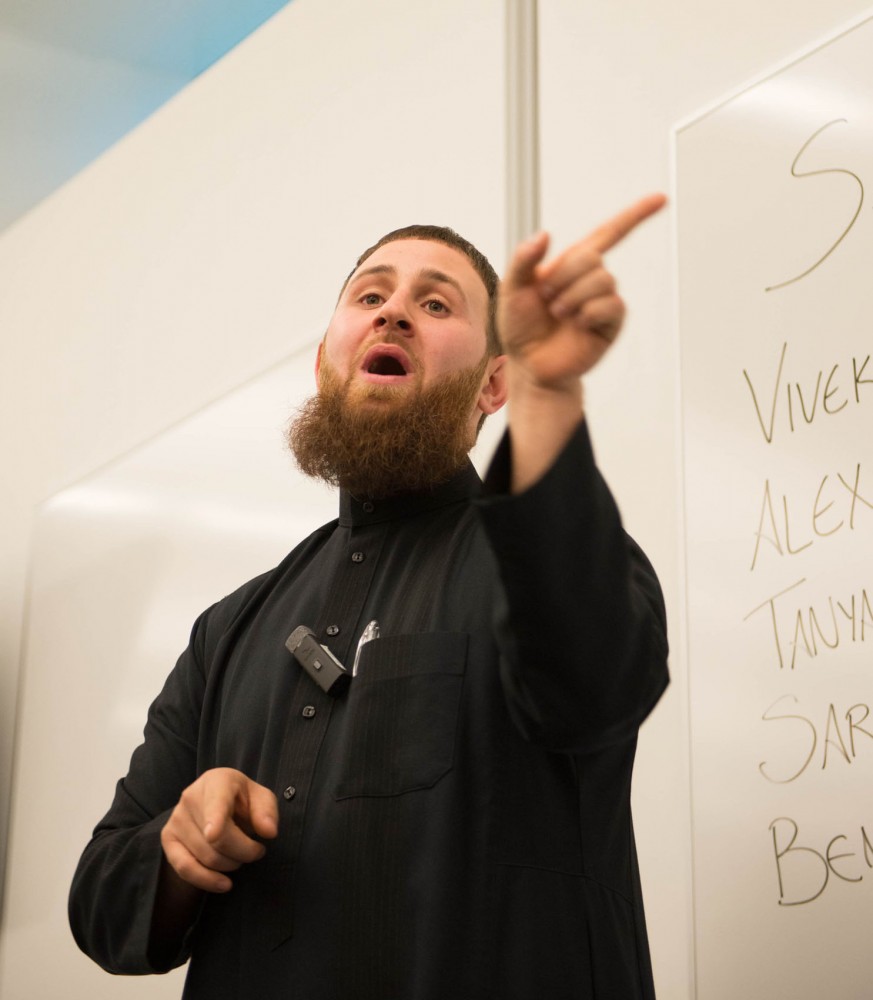An educational event on Friday about Muhammad brought peace between the Muslim Student Association and Campus Atheists, Skeptics, and Humanists.
The Muslim Student Association organized the event in response to CASH’s “Everybody Draw Mohammed Day” on Sept. 27 as well as other recent controversy, including an anti-Islam film that sparked violent protests around the world.
University of Minnesota students and interested members of the public filled a Science Teaching and Student Services classroom for “Muhammad and His Place in Islam,” which aimed to educate people about the prophet Muhammad and the Islamic faith.
Imam Youssef Soussi, who speaks to non-Muslims in Minnesota about understanding Islam, lectured the audience and led a question-and-answer session.
CASH’s event, held late last month, aimed to exercise freedom of speech by drawing pictures of Muhammad, an act that many Muslims find offensive.
“[Muhammad] is the dearest thing to our hearts. We love him more than anyone else,” Soussi said, calling the day of drawing “very immature.”
CASH members went to the lecture Friday night.
Joshua Brose, a co-chair of the group, said the intent of the drawings was not to spread hate toward Islam.
“I wish [Soussi] had clarified more about the event we had,” he said.
Muhidin Sheekh, an international business sophomore, said he was “disappointed” in CASH’s event but didn’t show his anger.
“[It’s] outside of my control,” he said.
Members of CASH met with the Muslim Student Association after the event. CASH co-chair Bryan Carver said the discussion went well, and the groups “came to a general understanding.”
Carver said that CASH “assured [the Muslim Student Association] that we meant no disrespect.”
Muslim Student Association president Azhar Abdusebur said they hoped to understand CASH’s motive with the event and open up a dialogue between the two groups.
Leaders of both the Muslim Student Association and CASH said they hope to work together on future events.
The groups “assured each other that there was minimal, if any, harm done,” Carver said.
Much of Soussi’s lecture focused on showing Muhammad’s virtues and “noble character” and explaining why Muslims react so strongly to negative portrayals of their prophet.
“It was really inspiring and helpful to enlighten us about [Islam],” Sheekh said.
Soussi charged the media with negatively influencing people’s view of Islam. He said the media has been doing a “prominent and diligent job” of giving Islam a negative public image.
“There is no room for any good Islam to be portrayed in the media,” he said. “It’s very rare to find Islam’s virtues on TV.”


